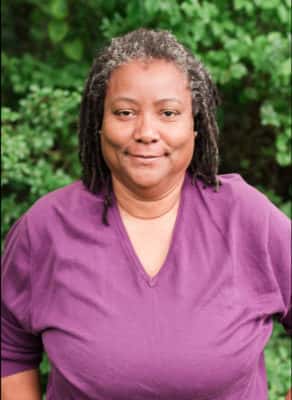
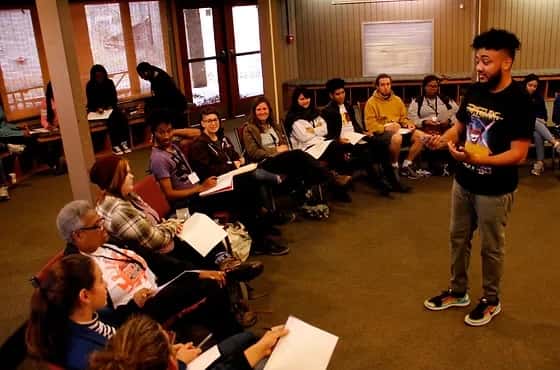

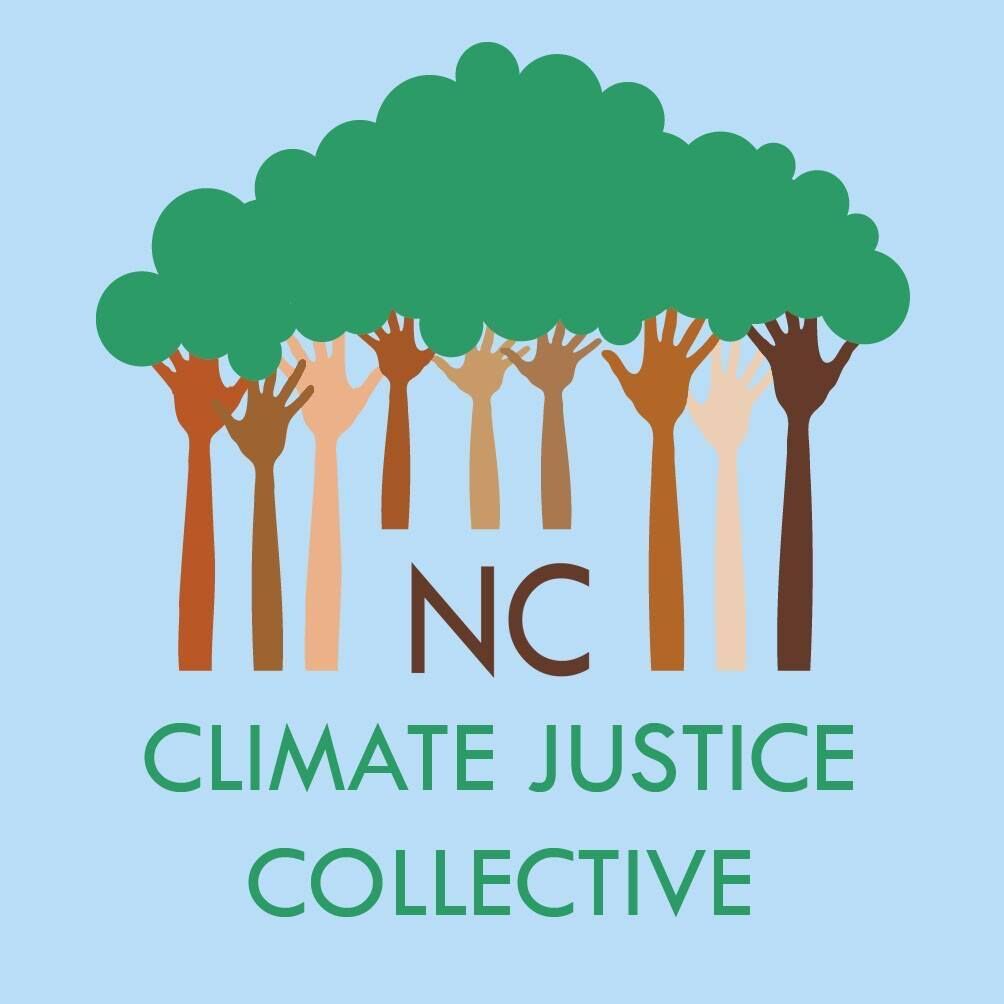
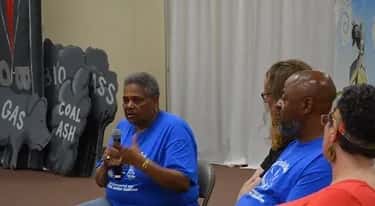
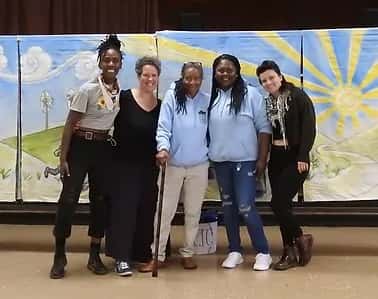
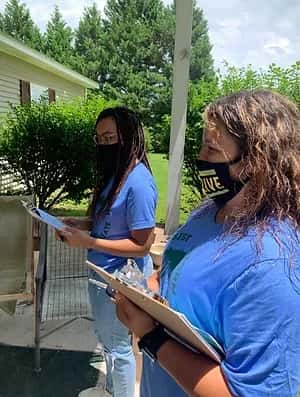
North Carolina Climate Justice Collective
Greensboro, NC
In 2021, Climate Nexus launched an Energy Equity Regranting Project to help resource organizations, tribes, and community leaders on the frontlines of climate change and the impactful work they are doing to fight the gas industry. The energy equity transition grants prioritize grassroots groups with an annual budget of $1 million or less to boost their efforts in racially, ethnically, gender, and culturally diverse communities across the United States and at the intersections of public health and energy justice.
In our second year running the program, 11 organizations received grants ranging from $20,000 to $40,000, including the North Carolina Climate Justice Collective, whose work is detailed below.
Overview
Jodi Lasseter and Connie Leeper started the North Carolina Climate Justice Collective in 2013 because they didn’t want just to bring a chair to the table; they wanted to create their own table. With an intersectional approach that is rooted in cultural organizing and popular education, they work to address environmental issues that directly impact North Carolinians living on the frontlines of extractive industries and climate change.
Activities
Jodi Lasseter and Connie Leeper started the North Carolina Climate Justice Collective in 2013 because they didn’t want just to bring a chair to the table; they wanted to create their own table. With an intersectional approach that is rooted in cultural organizing and popular education, they work to address environmental issues that directly impact North Carolinians living on the frontlines of extractive industries and climate change.
Activities and Outcomes
There are five issues that NCCJC consistently organizes around:
- Gas infrastructure, including pipelines, compressor stations, liquified “natural” gas facilities, power plants, and false solutions like “renewable natural gas” from industrial agriculture
- Coal, coal ash, and proposals to reburn coal
- Wood pellet manufacturing and deforestation
- Extreme weather disasters, resilience-based organizing, and climate resilience planning
Sixth North Carolina Climate Justice Summit
After a hiatus due to the ongoing COVID-19 pandemic, NCCJC hosted its sixth North Carolina Climate Justice Summit from August 25 – 27, which provided an interactive, inclusive space to enhance the connection between groups with unequal power, like youth and adults.
Holding Toothless Regulators Accountable
NCCJC has been organizing a steep uphill battle against the North Carolina Utilities Commission, whose job is to regulate the state’s monopoly utility run by Duke Energy, which has tremendous influence over state politics and policy. Recently, Duke Energy released an updated carbon plan that purports to reduce emissions by replacing coal with methane gas and threatens to phase in false solutions such as so-called renewable natural gas, all while raising utility costs for consumers.
Leading Statewide Coalitions
NCCJC is the founder of Thrive NC, a growing network of organizations representing the intersection of the movement for environmental, climate, and economic justice. NCCJC is also a founding partner of the Climate and Jobs Roundtable, which is focused on building labor’s contribution to transforming the state’s economic and political systems toward a regenerative economy that supports workers, protects the environment, and paves the way for a sustainable future.
Lessons Learned
Connie Leeper, NCCJC Co-Founder and Co-Director, reflected, “So the country girl in me, you know, has to talk about the pacing, the scaling, and the timing to see change in our lifetime. I can be impatient, and I want to see the results right away. And this climate justice work is not that kind of party. For me, it would be always having to pay attention to the fact that organizing and community building is really slow work, and it’s a process. And for it to have good outcomes, we got to get out of our own way.”
Jodi Lasseter, NCCJC Co-Founder and Co-Director, said, “All the isms of domination–racism, sexism, classism–and on and on it goes are also tripping us up because we think because we’re progressive-minded people. We’re engaged in movement-building and we think those things aren’t at play inside of our organizations and between our organizations. But they very much are. So I’m really hungry for us to be able to have accountability processes where we can call each other in and be really courageous and deal with these conflicts and deal with these hurt places and understand that there is tremendous collective trauma and be able to get to a new place and how we can work strategically together.”
Future and Sustainability
NCCJC is cultivating regional resiliency hubs to provide interactive, culturally relevant training in resilience-based organizing. These hubs provide a space for respite, connection, and consciousness-raising. NCCJC hopes they can be a platform to galvanize a just transition and to develop a foundation for a local regenerative economy as an alternative to the extractive fossil fuel economy.
NCCJC hopes to expand the process of a year-long cohort training of grassroots organizers from all of their hubs on energy justice. They also want to expand the staff positions they need over the next two to three years to grow into the green jobs workforce.
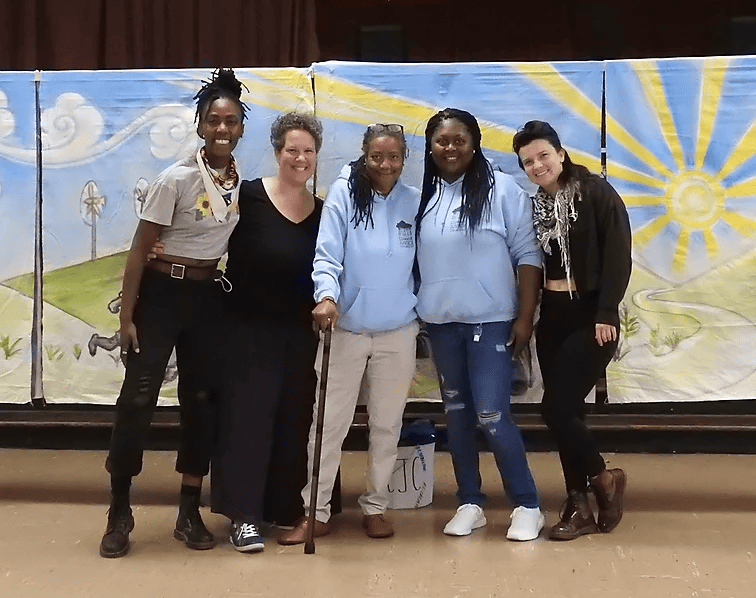
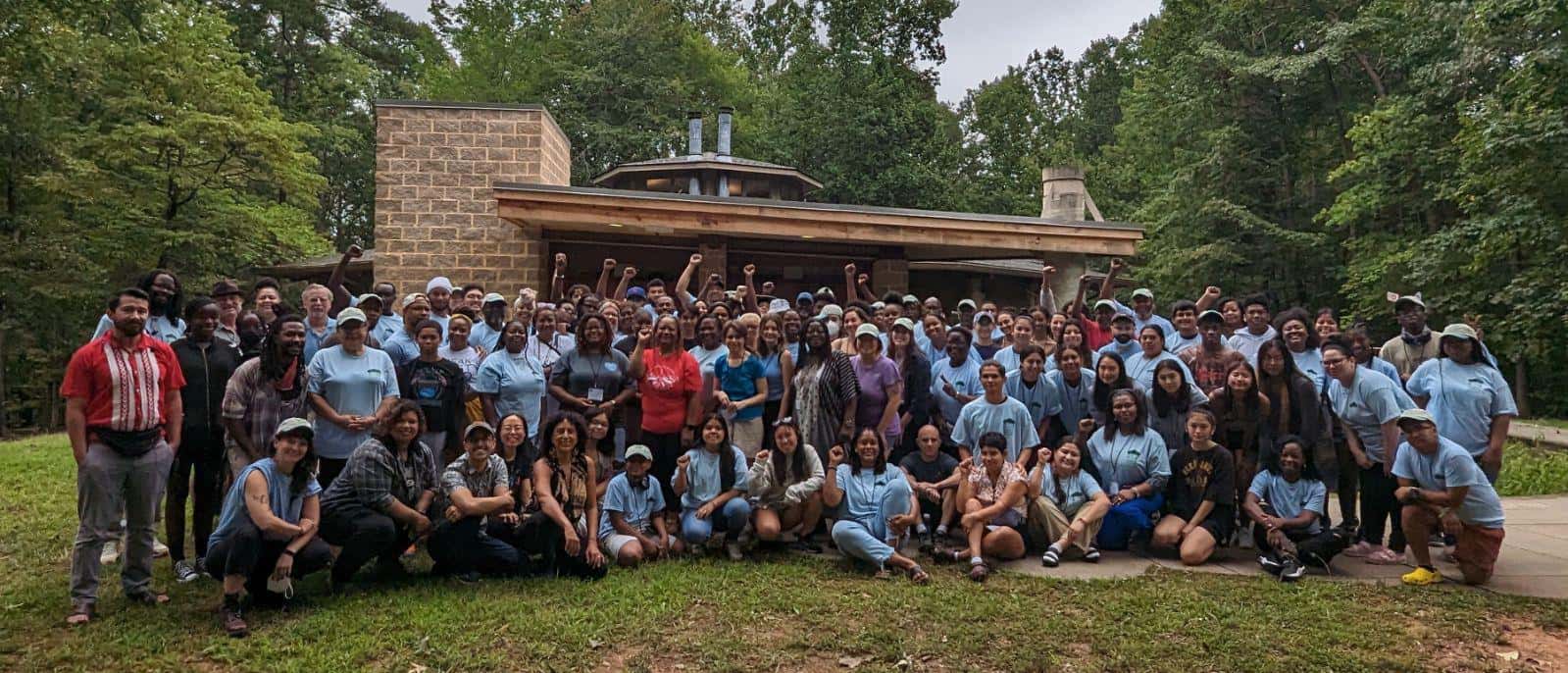

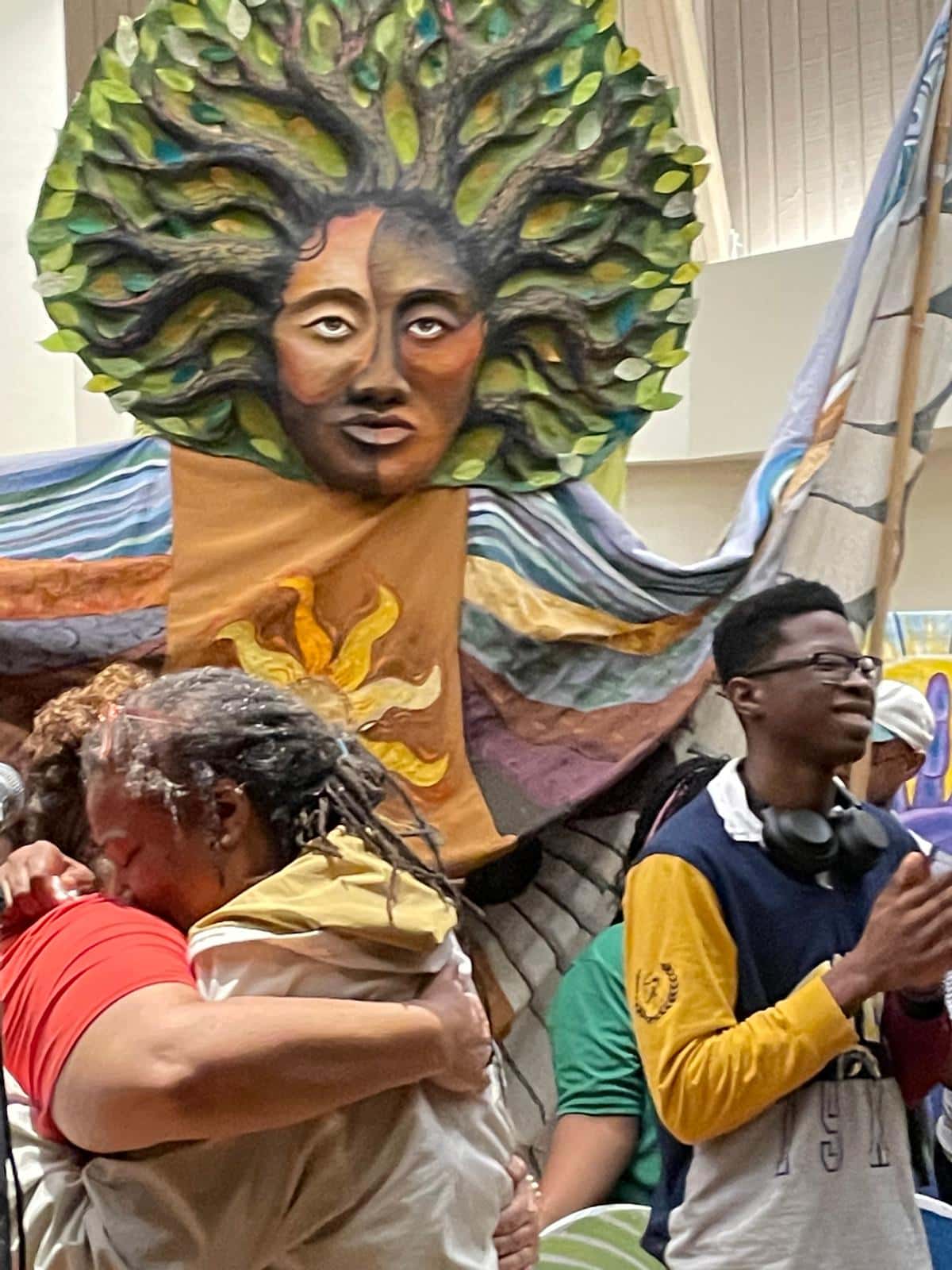





Filter Grantees by Year:
-
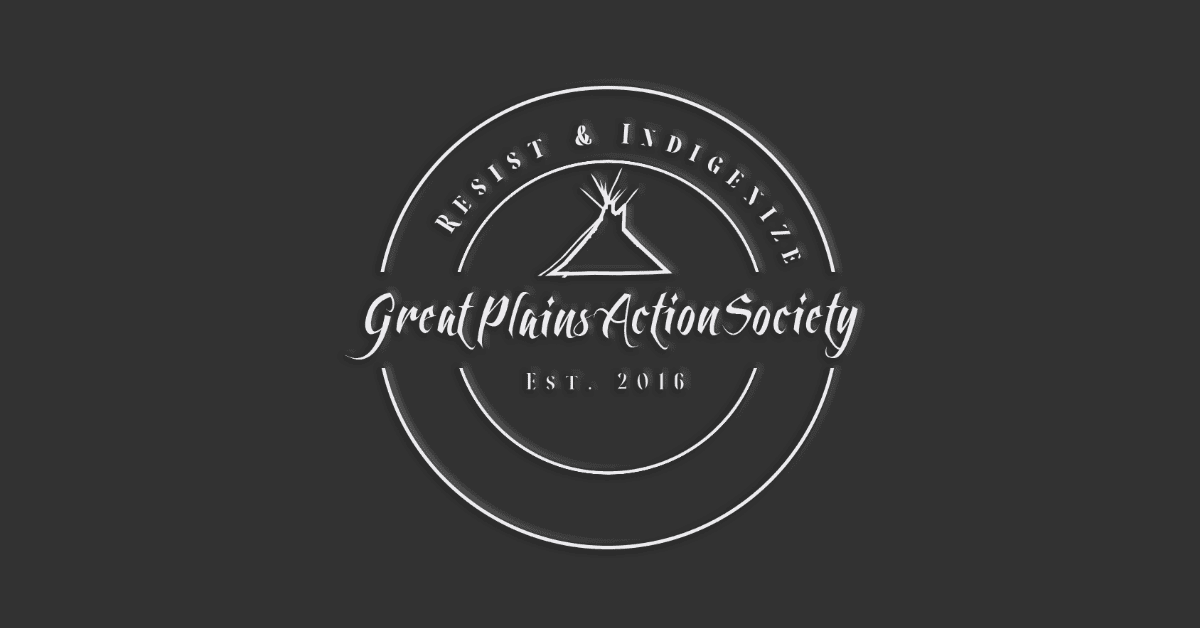
Great Plains Action Society
Great Plains Action Society addresses the trauma that Indigenous Peoples and the Earth face from colonial capitalism and works to prevent further violence.
-
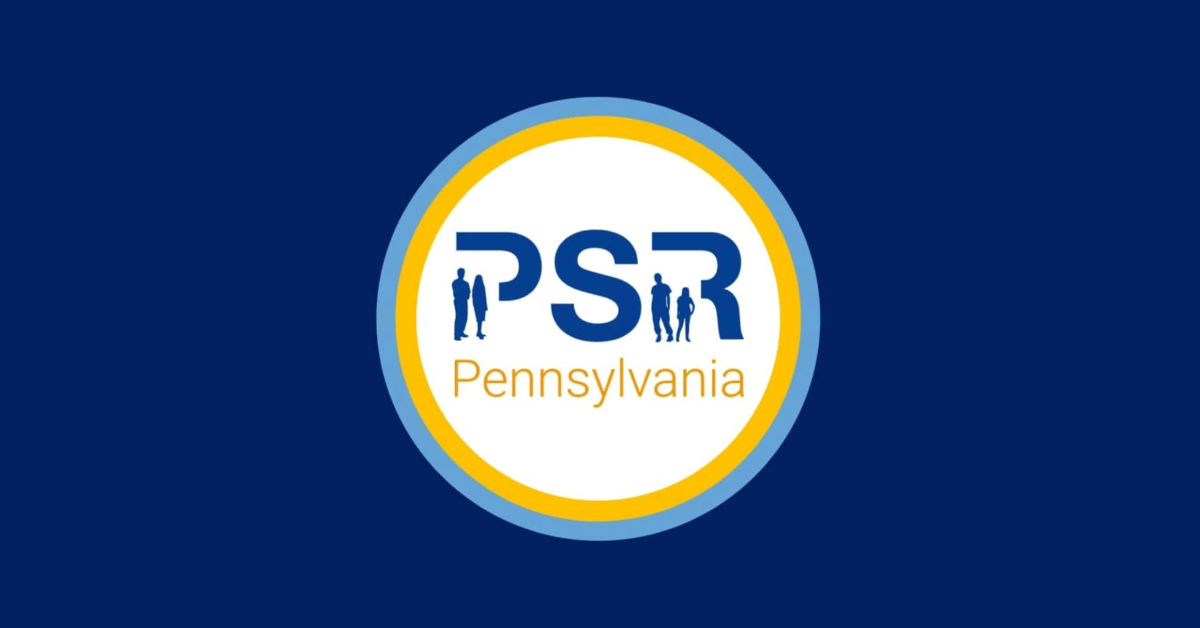
Physicians for Social Responsibility Pennsylvania
Physicians for Social Responsibility Pennsylvania has spent the past decade educating Pennsylvanians on the health dangers of the gas industry.
-

7 Directions of Service
7 Directions of Service is fighting to cancel the Mountain Valley Pipeline’s Southgate Extension and to advance Rights of Nature laws.
-
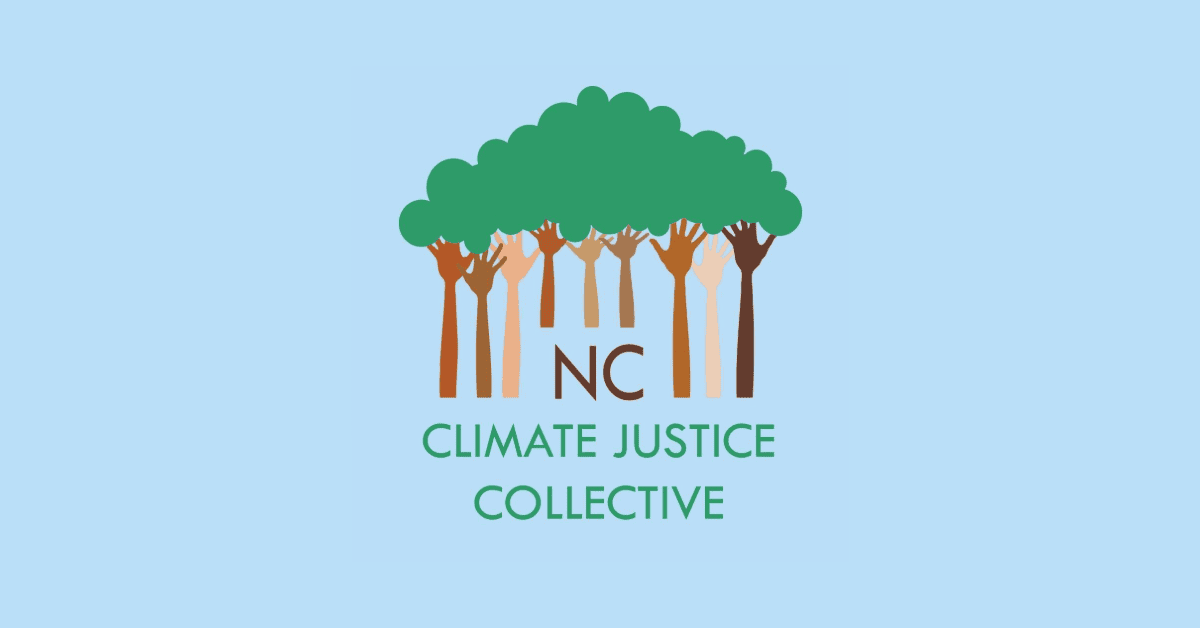
North Carolina Climate Justice Collective
NCCJC uses an intersectional approach to address environmental issues that directly impact North Carolinians living on the frontlines of extractive industries.
-

South Carolina Interfaith Power and Light
SCIPL develops programming and resources around food insecurity, high energy bills, electric vehicle infrastructure, and resilience hubs.
-
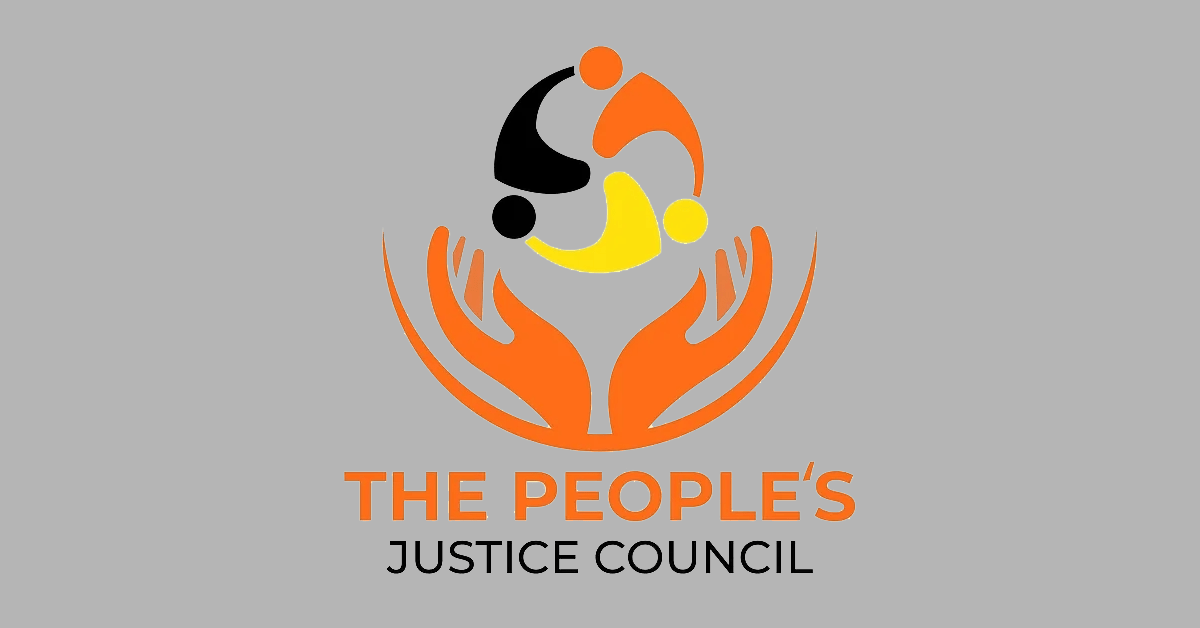
The People’s Justice Council
The People’s Justice Council is led by pastors, community organizers, and working professionals to create an equitable, sustainable, and just world.
-
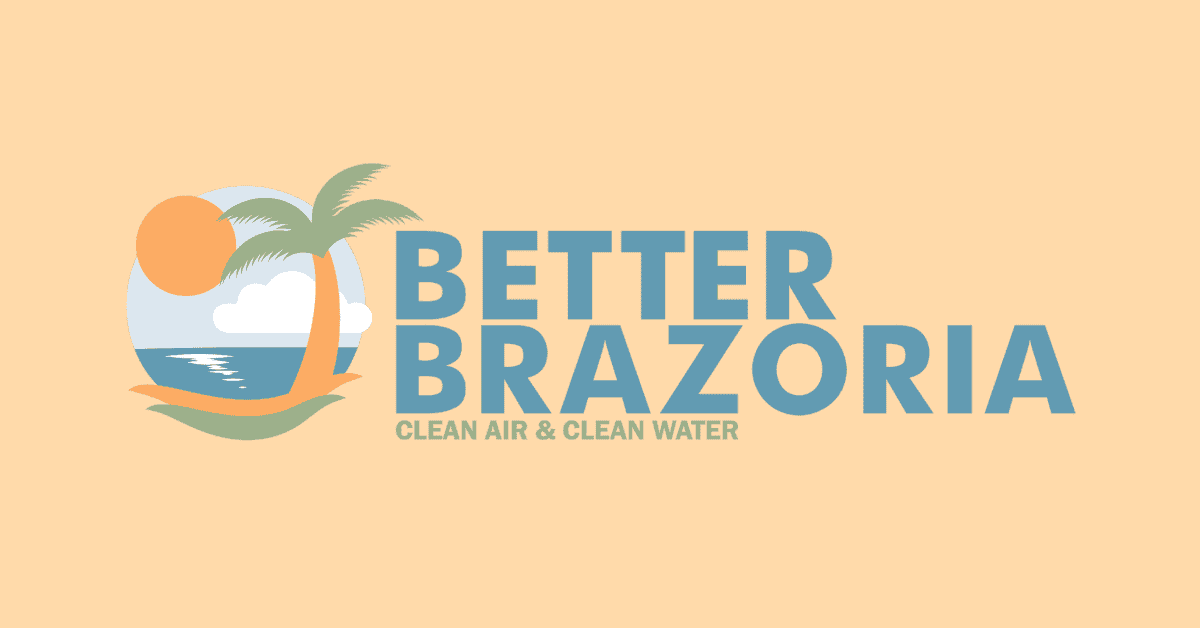
Better Brazoria: Clean Air & Water
Better Brazoria: Clean Air & Water supports residents of Brazoria County by watchdogging petrochemical companies trying to export liquid “natural” gas.
-

Society of Native Nations
SSN works to recognize the existence of Native peoples in Texas, and contest the petrochemical buildout from the Permian Basin to the Gulf Coast.
-

Carrizo Comecrudo Tribe of Texas
The Carrizo Comecrudo Tribe travels throughout Texas, monitoring pipelines, disposal wells, ongoing border wall construction, and fracking/flaring violations.
-

Rio Grande International Study Center
RGISC conducts independent research and community education to steward the environmental preservation and restoration of the Rio Grande Basin.
-

People’s Justice Council (PJC)
PJC organizes not-for-profit electric co-ops around Montgomery to avoid monopolized utility and grow constituency around energy and environmental justice.
-

Oregon Just Transition Alliance (OJTA)
Oregon Just Transition Alliance had three significant policy gains over the second half of 2022 due to strategic and tactical grassroots advocacy efforts.

